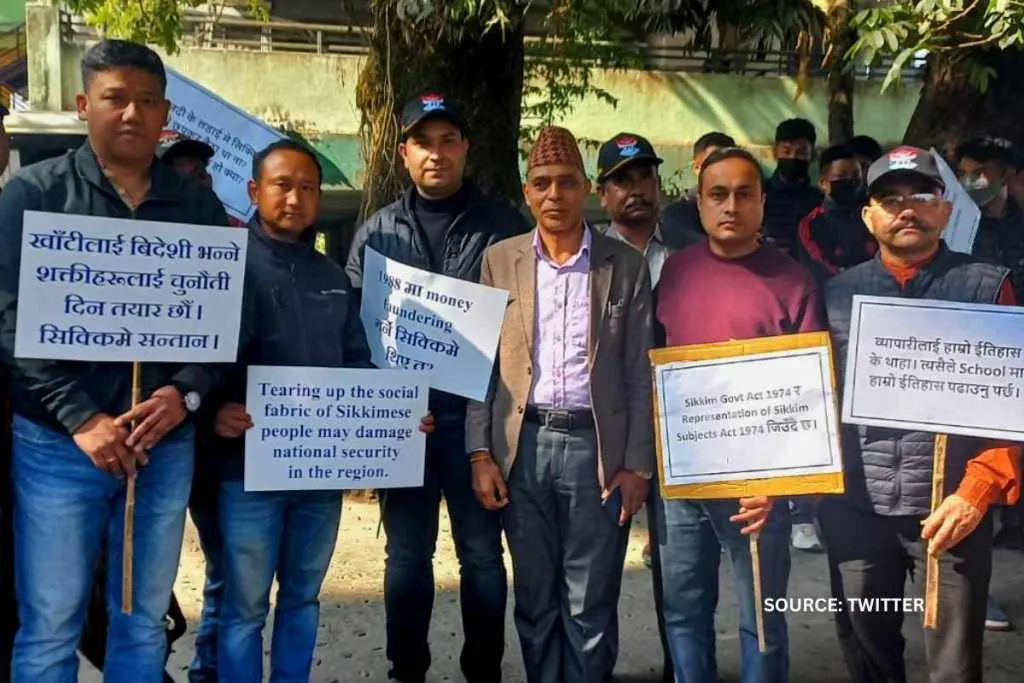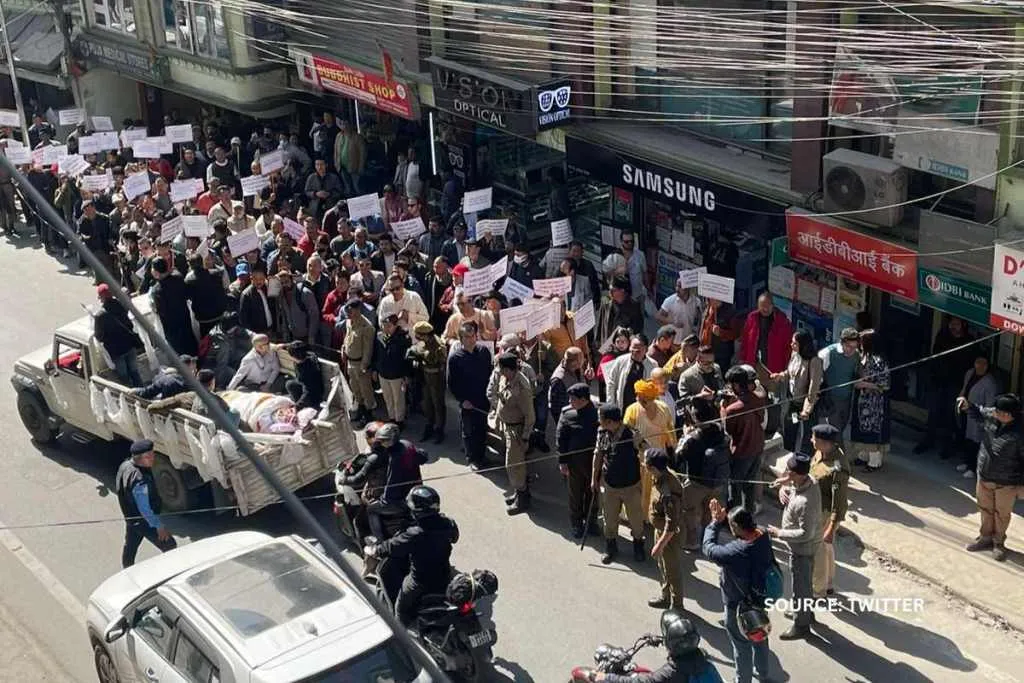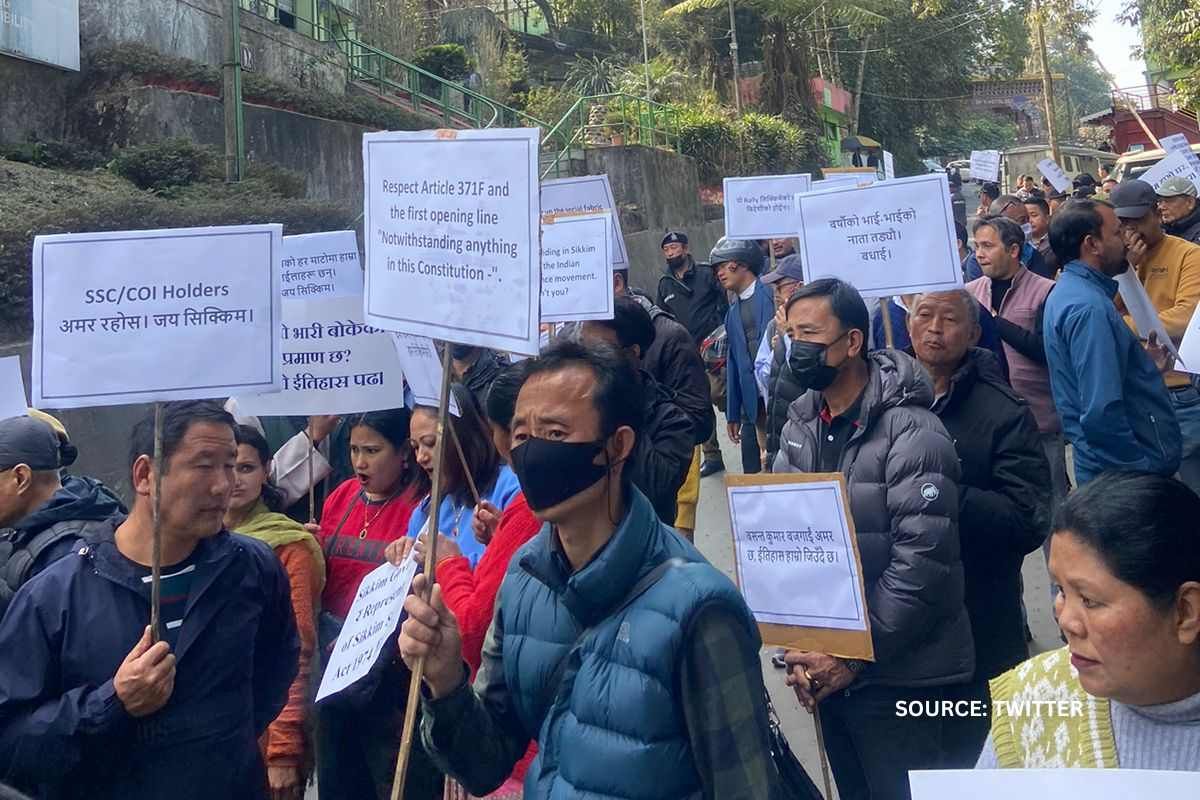People of the Nepali community were on the streets in Sikkim, recently on January 13, the Supreme Court called the Nepali community of Sikkim foreigners during the hearing of the petition demanding tax exemption for Sikkimese citizens. After a massive protest, the Supreme Court removed the reference to Sikkimese-Nepalese as ‘people of foreign origin’ from its order on January 13 regarding tax exemption in Sikkim.
A bench of Justice MR Shah and Justice BV Nagaratna modified its decision while hearing the Centre’s application along with applications by Sikkim and private parties seeking modification of the remarks.
Initially, the apex court agreed to delete the portion ‘persons of foreign origin settled in Sikkim like Nepalis’, but Solicitor General Tushar Mehta, appearing for the Centre, urged the bench to delete the entire sentence.
The bench said that the error occurred because the original writ petitioners made more than 25 amendments in the petition, but this fact was not brought to the notice of the court.


Three main groups in Sikkim
Let us tell you that there are mainly three ethnic groups in Sikkim, Lepchas, Bhutias, and Nepalis. The population of Lepchas and Bhutias in the state is 27 percent and Nepalis 58 percent.
The people of the Lepchaz and Bhutia communities used to be the elite class in the former Buddhist Kingdom. They believe that Sikkim had to join India in 1975 because of the civil unrest created by the Nepali community. After becoming part of India in 1975, the Lepchas and Bhutias became a minority in the state.
Nepalis say that they have contributed to Sikkim’s economy for the last 150 years, so they have equal rights in Sikkim.
But the Nepali community of Sikkim has been facing an identity crisis for years. The observation of the Supreme Court has further increased the insecurity of this community.
What was the case in the Supreme court?
In the Supreme Court, the Marwari community of Sikkim challenged the tax exemption given to the communities living in Sikkim before 1975.
This tax exemption rule, which came in the year 2008, was discriminatory and against fundamental rights because many communities living in the state before 1975 were kept out of it, as well as tax exemption was not given to women who marry non-Sikkimese men.
The Supreme Court agreed that the benefit of tax exemption should be given to every domicile in Sikkim. The decision to keep women out of it has also been quashed by the Supreme Court.
Pronouncing her verdict, Justice BV Nagarathna said that Sikkim’s 1948 tax manual does not differentiate between citizens on the basis of origin, all citizens are equal irrespective of their origin.
That’s why all citizens should get equal rights.
Protests in Sikkim
The order of the Supreme Court has been welcomed by all, but there is a protest against the observation of the court in which Nepalese were called foreigners.
Chief Minister Prem Singh Tamang had also expressed concern over the court’s remarks amid the protests. Amid the public outcry, the state’s Additional Advocate General (AAG) Sudesh Joshi, who was representing the petitioners in the apex court, resigned on February 1.
Political parties in the state had accused the advocate general of not giving enough information to the court about the difference between the Nepali population settled in Sikkim and the people who had settled here in the past.
The very next day, on February 2, State Health Minister Mani Kumar Sharma resigned in protest against the state government’s mishandling of the Supreme Court’s remarks.
Politics is also intense on this matter, former BJP state president D.B. Chouhan supported protests across the state on this matter.
He said, “The central government should make every effort to protect the uniqueness of the state of Sikkim. The Law and Home Ministries should take all necessary steps to protect the special status accorded to the people of Sikkim, including Nepalis, Bhutias, and Lepchas, who voted for the merger in the Union of India.”
Read More
- J&K Agri dept to support Sikkim for cultivating Saffron
- China building concrete camp near eastern Ladakh, Sikkim: Report
Follow Ground Report for Climate Change and Under-Reported issues in India. Connect with us on Facebook, Twitter, Koo App, Instagram, Whatsapp and YouTube. Write us on GReport2018@gmail.com.







